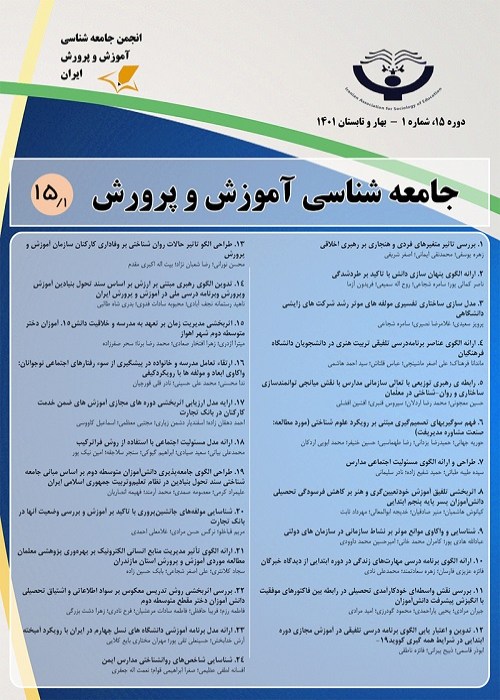Investigating the Effective Factors and Consequences of Adaption Lean Management with the Higher Education System of the Country
This article aims to investigate the effective factors and consequences of lean management in the country's higher education system.
The research method is fundamental-applied in terms of its purpose, and in terms of the method of collecting information, it is a part of mixed research (quantitative and qualitative). The statistical population in the qualitative section included higher education experts. To determine the samples of this research and to determine this group of experts, a non-random sampling method was used with the number of 20 people. The second group of the statistical population of this research included all the managers and assistants of Azad University units in Tehran who are working in the number of 1190 people, using stratified random sampling method and Cochran's formula, 291 people were selected as subjects. The data collection tool was interview in the qualitative part and researcher-made questionnaire based on a 5-option scale in the quantitative part. Validity of the questionnaire in terms of form and content through several experts, convergent validity was extracted by calculating the average variance. Cronbach's alpha, average variance extracted (AVE), root matrix AVE, Kolmogorov-Smirnov and confirmatory factor analysis using Lisrel software were used for data analysis.
The results of the research findings, by examining the research questions on determining the dimensions, components and key, effective, effective indicators of the lean management adaptation model with the country's higher education, showed that among the 58 existing indicators (items), 9 main components could be identified.
Considering the results of organizational factors as causal conditions, it was considered that the effective components include knowledge management, pure leadership and academic organizational atmosphere, the consequential components include innovative performance, sustainable competitive advantage and educational quality.
- حق عضویت دریافتی صرف حمایت از نشریات عضو و نگهداری، تکمیل و توسعه مگیران میشود.
- پرداخت حق اشتراک و دانلود مقالات اجازه بازنشر آن در سایر رسانههای چاپی و دیجیتال را به کاربر نمیدهد.



